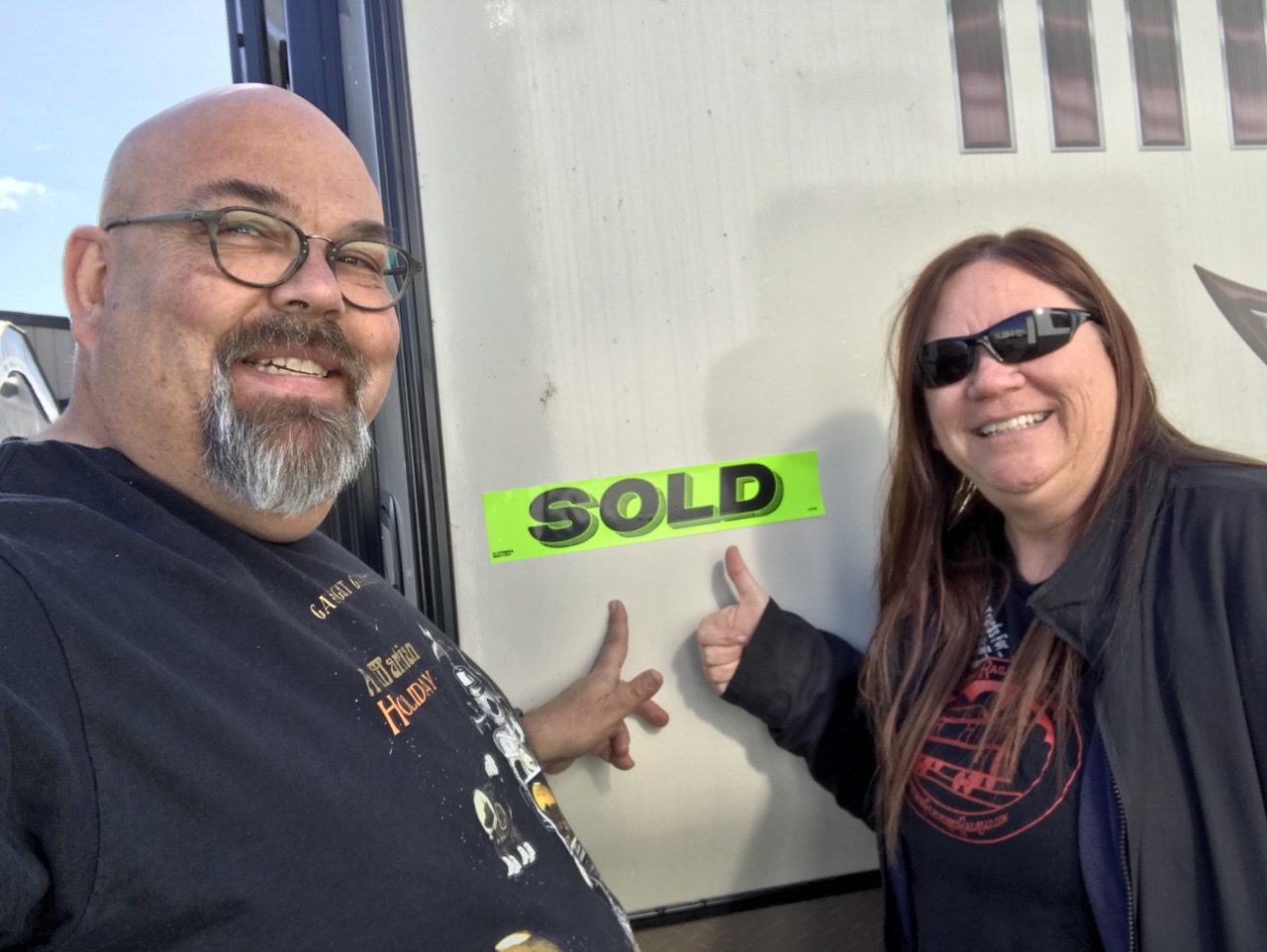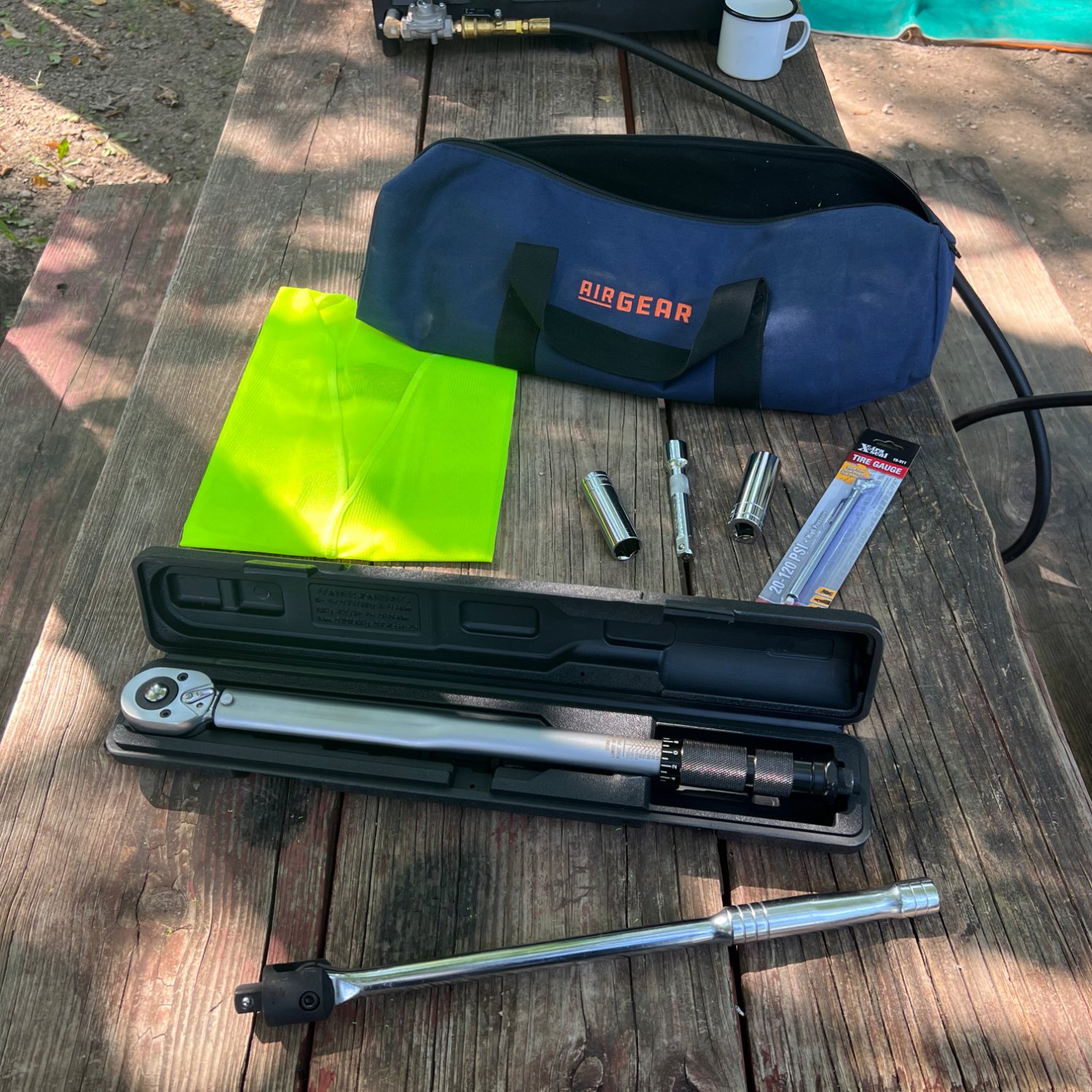China Bombs: replacing my travel trailer tires
RV China Bomb Tires - what we did
China bombs. Exploding tires. Anyone who’s been to the various RV forums has heard all sorts of derogatory terms for the tires that come installed on many travel trailers. And, unlike when buying a new car or truck, RV manufacturers don’t offer an upgrade path for purchasers of new travel trailers short of complete replacement.
I had heard all these terms for the tires that come with travel trailers and had a set of these low-bidder tires on my own travel trailer. I am meticulous about the things that make my vehicles go and stop and check the inflation pressure of my travel trailer tires, along with the pressure in the tow vehicle, regularly.
When we headed out for our month-long Quartzsite adventure I checked the tires in the trailer and was surprised to find one of them at 16psi which is much lower than the 50psi I keep them at as recommended by the manufacturer. After sitting for a while the tires in the travel trailer are always a bit low and I’m used to having to top off the inflation. In fact, I even bring a battery-powered inflator with me on all my trips.
Yeah, I’m that nerdy. And we talked about all the Ryobi tools I bring along in the StressLess Camping podcast episode about power tools.
How to determine the age of your RV tires
But this much change in inflation pressure in just a few weeks is surprising. In fact, it made me think it was time for new tires.
Our first stop on this journey was a remote town where my sister lives so I could catch up with her. I wasn’t likely to find travel trailer tires here so I checked the pressure again and, sure enough, it had dropped a bit on one side but nothing a moment with the inflator couldn’t fix. Still, this is abnormal behavior and not good.
Next up a couple of days in the “big city” and this meant the opportunity to get new tires. I called around and, sure enough, several dealers offered better travel trailer tires and had them in stock. This is such a difference from what I’m used to in a somewhat remote small town where everything but the air we breathe is special order.
I made an appointment and was on my way. Of course, I checked the tires before journeying out to the dealer and, sure enough, one of them was shockingly low. I figured I had a slow leak/puncture in the tire but it should make it to the dealer after being topped off.
Nope.
On the road to the tire shop someone flagged me down telling me that the tire was flat. I figured it had just gotten low on the trip but good practice made me pull off to the side of the road. It was, as this good samaritan had pointed out, flat. Now, in the pouring rain, I had to choose whether to install the spare or give this tire a dose of new air and hope it would make it the few remaining miles to the tire shop. This was the easier solution.
Remember, if you ever want to know the easiest way to accomplish anything ask a middle-aged fat guy.
All tires in all vehicles are a sort of sandwich of materials. Obviously we see the outside rubber material and the tread, but there is so much more to a tire than just tread. We’ve all heard of steel-belted radials and steel belts are a component inside the layers of material in the tire. There are other layers and the number of layers, or plies, can be a component to determine the tire’s ability to handle loads. It can also affect stiffness and the resulting fuel economy as well.
Load rating is another factor - tires are designed to carry a specific load given the recommended inflation pressure of the tire. Tires are rated for load rating by letter grade so you can find tires in the same size that are able to carry different amounts of weight based on their design. You never ever want to use a tire capable of less load than the vehicle manufacturer designates.
Lastly, there are all sorts of tires but travel trailers are supposed to be shod with “ST” or “Special Trailer” tires. These have been designed to withstand the incredible forces generated by scrubbing. Scrubbing is what happens when a trailer turns a tight corner and you see the tires literally skidding through the corner. This can destroy lesser tires but ST tires are designed for this.
Tires not only age on the outside, but from the inside as well. The tire industry itself recommends not letting a tire get older than five years and several RV experts I’ve talked to say that three is really the maximum you should allow. You can determine when a tire was manufactured by the DOT code on it (see infographic).
Since environmental challenges such as sun damage can be significant factors in travel trailer tire failure, having your tires covered when the RV is just sitting can also extend the life of the tires as it’s general age and deterioration that kills them which is different than on your tow vehicle where they generally wear out often times.
Of course road damage is also a factor in any tire and running over things on the road can destroy any tire. Tires that have more plies may be less susceptible to this damage but a nail’s going to puncture any tire it comes across, frankly. This is why it’s a good idea to give these life-saving devices the once over when you stop for fuel.
Never underestimate the value of walking around your rig when you stop for fuel and just looking at the various systems such as the hitch, the tires, and just the general condition of everything.
At the tire shop the folks were ready for me with two brand new Goodyear Endurance eight-ply travel trailer tires. I have a single-axle trailer so I basically replaced all the tires with new ones, which is best practice.
These new tires are inflated to 65psi instead of 50 for the previous ones and have a higher load rating, but that doesn’t mean I can put more stuff in my trailer. Remember the suspension, brakes and other components are all factors in what a trailer is able to hold.
After hitting the freeway with the new tires I immediately noticed a radically better towing experience. The trailer almost felt like it wasn’t back there and semis blowing by me at much faster than the legal speed limit didn’t cause the trailer to sway nearly as much as before. The trailer was tracking much better than it did on the cheap tires.
I also noticed after almost 800 miles and several days there was absolutely zero drop in tire pressure meaning more peace of mind for me.
I asked the tire installer what happened to the old tire and he couldn’t find anything specifically wrong with the tire. His guess was that it literally fell apart and couldn’t hold air any longer. The tire was manufactured just about three years ago and we had only put about 9,000 miles on it. The tires on my tow vehicle are a year older and have over 50,000 miles on them with plenty of tread left and holding air just fine.
In the past I’ve told people that if they simply kept track of inflation pressure these original tires weren’t that bad. I no longer feel that way - I now agree with the people on the forums who aren’t enthusiastic fans of these cheap trailer tires.
I wish RV manufacturers would give us an option of upgrading the standard tires on travel trailers other than filling the landfills with the tires that come with them and simply replacing them with new ones. Automakers have this figured out and have for decades. Or just charge me a couple hundred bucks more for a trailer and put tires on it that aren’t garbage.
One thing - I am aware of the class action suit against Goodyear for these tires and am curious as to the cause. Working in the RV business I see a lot of people who come in with their tires severely under inflated which can cause failure and premature wear. I wish there was a way to determine if lack of maintenance was a principal cause of these failures or if it’s actually a flaw in the design or manufacturing. Or if it’s just a lawsuit because people had tire failures and Goodyear has money. If it’s not evident, I’m skeptical of class action lawsuits.
We shall see if these new Goodyear Endurance tires prove themselves over the long haul but so far, I’m completely thrilled with this purchase for a variety of reasons, not the least of which is peace of mind. And you know that that means - StressLess Camping!



